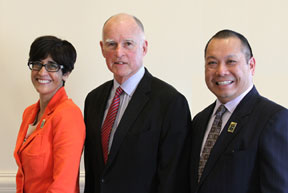Heading 2
Lorem ipsum dolor sit amet, consectetur adipisicing elit. Nostrum minus ea suscipit porro alias corporis libero at. Perferendis omnis, veniam nemo beatae vel? Tempora numquam a repellat eaque natus, magnam?
Heading 2
Lorem ipsum dolor sit amet, consectetur adipisicing elit. Autem ipsum mollitia neque, illum illo excepturi, eum incidunt fugit nostrum est, voluptate eaque minima corporis debitis at, dolores ipsam. Quaerat, dolores.
Heading 2
Lorem ipsum dolor sit amet, consectetur adipisicing elit. Autem ipsum mollitia neque, illum illo excepturi, eum incidunt fugit nostrum est, voluptate eaque minima corporis debitis at, dolores ipsam. Quaerat, dolores.
Heading 2
Lorem ipsum dolor sit amet, consectetur adipisicing elit. Autem ipsum mollitia neque, illum illo excepturi, eum incidunt fugit nostrum est, voluptate eaque minima corporis debitis at, dolores ipsam. Quaerat, dolores.
Heading 2
Lorem ipsum dolor sit amet, consectetur adipisicing elit. Autem ipsum mollitia neque, illum illo excepturi, eum incidunt fugit nostrum est, voluptate eaque minima corporis debitis at, dolores ipsam. Quaerat, dolores.
While California is well down the road to economic recovery, Gov. Jerry Brown told a group of retail grocers, it may be another four to five years before it fully recovers.
 “Economists are saying some parts of California are doing better,” the Governor told the CGA Board of Directors on Thursday. “California’s economy is growing faster than the nation’s economy.”
“Economists are saying some parts of California are doing better,” the Governor told the CGA Board of Directors on Thursday. “California’s economy is growing faster than the nation’s economy.”
Brown, who supports increasing the minimum wage said its essential if California is going to compete in a global economy.
When asked what his priorities will be if elected to a fourth term, the governor said maintaining a balanced budget, decentralizing education from the state level to local school districts, realigning the state’s prison system and addressing climate change will be his top priorities. He added that the state’s water situation must be addressed and he strongly supports a high-speed rail system.
Speaking on a broad range of topics, Brown addressed, among other topics, the unfavorable view most Americans have of Congress.
“Congress is not viewed with any great confidence,” Brown said. “Neither do they of the California Senate,” referring to several recent arrests of state legislators in Sacramento.
“Only 15-18 percent of Americans have a favorable view of Congress,” Brown said. “That should be disquieting because Congress is the mechanism of a representative form of government. If we feel the representatives are so bad, what does that say about representative government.”
He blames government’s dysfunction on the fragmentation and polarization of both political parties, although in California it’s less because one party controls both houses and “you have me as governor,” he added.
 “It’s about balancing interests,” Brown said. “I think the big principles are clear. You want everyone to have a decent chance. You want to make sure your schools are funded. You want to make sure your college costs don’t grow too excessive, and you want to make sure you have an environment. Concerns should be put in their proper context.”
“It’s about balancing interests,” Brown said. “I think the big principles are clear. You want everyone to have a decent chance. You want to make sure your schools are funded. You want to make sure your college costs don’t grow too excessive, and you want to make sure you have an environment. Concerns should be put in their proper context.”
Asked if he believes the State Legislature shares his views regarding focusing on major issues and diverting from the smaller ones, the governor said “no.”
Brown said hundreds of special interest groups lobby legislators on a regular basis.
“That’s why we get 1,200 bills a year,” he said. “Outside of a crisis, it’s hard to get real focus.”
In business, the Governor said, you have competition to keep you focused. Government doesn’t have that same pressure.
Brown briefly discussed SB 270, which would ban single-use plastic carryout bags statewide, saying the 10-cent charge on paper bags does work.
